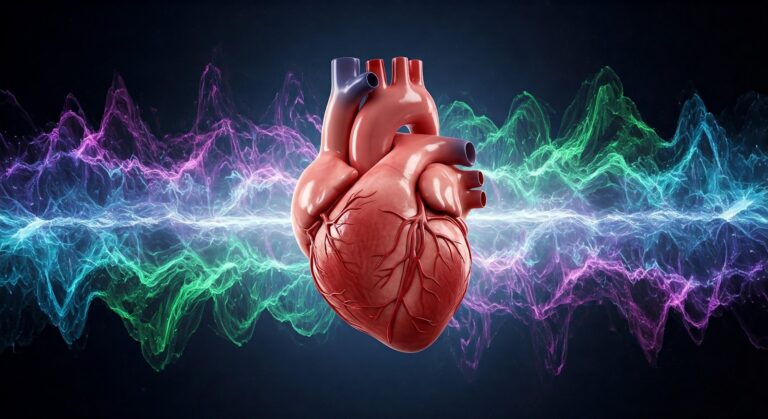Maintaining a healthy heart rhythm is necessary for overall well-being. The foods we consume play a significant role in influencing our heart health, including its rhythm. This artoc;e explores various foods and their impact on heart rhythm, providing a detailed understanding to help you make informed dietary choices.
Understanding Heart Rhythm
Before diving into specific foods, it’s essential to understand what heart rhythm is and why it matters. A normal heart rhythm, also known as sinus rhythm, is a steady and regular heartbeat that efficiently pumps blood throughout the body. Irregular heart rhythms, or arrhythmias, can range from harmless to life-threatening. Factors like diet, lifestyle, and underlying medical conditions can influence heart rhythm.
Foods That Support Healthy Heart Rhythm
Several foods contribute positively to heart health and help maintain a regular heart rhythm. These foods are often rich in nutrients that support cardiovascular function.
Fruits and Vegetables
Fruits and vegetables are packed with vitamins, minerals, and antioxidants, which are significant for heart health.
- Berries: Strawberries, blueberries, and raspberries are rich in antioxidants, which help reduce inflammation and oxidative stress, both of which can affect heart healthh.
- Leafy Greens: Spinach, kale, and other leafy greens are high in potassium and magnesium, essential minerals for maintaining a regular heartbeat.
- Bananas: A great source of potassium, bananas help regulate heart rhythm and blood pressure.
- Avocados: Rich in healthy fats, potassium, and fiber, avocados support overall cardiovascular health.
Whole Grains
Whole grains provide fiber and other nutrients that are beneficial for heart health.
- Oats: Oatmeal is known for its cholesterol-lowering properties and high fiber content, which supports a healthy heart.
- Brown Rice: A good source of fiber and magnesium, brown rice contributes to maintaining a regular heart rhythm.
- Quinoa: This grain is high in protein and fiber, providing sustained energy and supporting cardiovascular health.
Healthy Fats
Including healthy fats in your diet is essential for heart health.
- Fatty Fish: Salmon, mackerel, and sardines are rich in omega-3 fatty acids, which have been shown to reduce the risk of arrhythmias and improve overall heart health.
- Nuts and Seeds: Almonds, walnuts, chia seeds, and flaxseeds are good sources of healthy fats, fiber, and magnesium.
- Olive Oil: Using olive oil as your primary cooking oil can help reduce inflammation and improve heart health.
Foods That Can Negatively Affect Heart Rhythm
While some foods support a healthy heart rhythm, others can have adverse effects. It’s important to be aware of these foods and consume them in moderation or avoid them altogether.
Processed Foods
Processed foods are often high in sodium, unhealthy fats, and added sugars, which can negatively impact heart health and rhythm.
- Fast Food: Frequently consuming fast food can lead to high blood pressure and cholesterol, increasing the risk of arrhythmias.
- Packaged Snacks: Chips, cookies, and other packaged snacks are often loaded with sodium and unhealthy fats.
- Processed Meats: Hot dogs, sausages, and other processed meats are high in sodium and saturated fats.
High-Sodium Foods
Excessive sodium intake can lead to high blood pressure, which is a major risk factor for heart rhythm problems.
- Canned Foods: Many canned soups, vegetables, and beans are high in sodium.
- Restaurant Meals: Restaurant meals often contain high levels of sodium.
- Table Salt: Overuse of table salt can contribute to high sodium intake.
Sugary Drinks and Foods
Excessive sugar consumption can lead to weight gain, insulin resistance, and inflammation, all of which can affect heart rhythm.
- Sodas and Juices: Sugary drinks can cause rapid spikes in blood sugar levels.
- Candy and Sweets: High consumption of candy and sweets can contribute to weight gain and heart problems.
Excessive Caffeine and Alcohol
While moderate consumption may not be harmful for everyone, excessive intake of caffeine and alcohol can trigger arrhythmias in some individuals.
- Coffee and Energy Drinks: High amounts of caffeine can increase heart rate and blood pressure.
- Alcoholic Beverages: Excessive alcohol consumption can disrupt heart rhythm and lead to other heart problems.
Key Nutrients for Heart Rhythm
Several key nutrients play a crucial role in maintaining a healthy heart rhythm. Ensuring an adequate intake of these nutrients is essential.
- Potassium: Helps regulate heart rhythm and blood pressure.
- Magnesium: Supports nerve function and muscle contractions, including the heart.
- Omega-3 Fatty Acids: Reduce inflammation and improve heart health.
- Fiber: Helps lower cholesterol and regulate blood sugar levels.
Here’s a table illustrating some key nutrients and their food sources.
| Nutrient | Food Sources | Benefits |
|---|---|---|
| Potassium | Bananas, Spinach, Sweet Potatoes | Regulates heart rhythm |
| Magnesium | Almonds, Spinach, Avocado | Supports nerve and muscle function |
| Omega-3 Fatty Acids | Salmon, Flaxseeds, Walnuts | Reduces inflammation |
| Fiber | Oats, Brown Rice, Apples | Lowers cholesterol |
Lifestyle Changes to Support Heart Rhythm
In addition to diet, lifestyle changes can also significantly impact heart rhythm.
- Regular Exercise: Engaging in regular physical activity helps strengthen the heart and improve overall cardiovascular health.
- Stress Management: Chronic stress can affect heart rhythm. Techniques like meditation, yoga, and deep breathing can help manage stress.
- Adequate Sleep: Getting enough sleep is critticall for heart health. Aim for 7-9 hours of sleep per night.
- Hydration: Staying hydrated is essential for maintaining proper electrolyte balance, which is important for heart rhythm.
Conclusion
The foods we eat play a significant role in our heart health, including its rhythm. By incorporating foods that support heart health and limiting or avoiding those that can negatively impact it, you can take proactive steps towards maintaining a regular heartbeat. Remember to consult with a healthcare professional or a registered dietitian before making significant dietary changes, especially if you have existing heart conditions.
Prioritizing a balanced diet rich in fruits, vegetables, whole grains, and healthy fats, along with lifestyle changes like regular exercise and stress management, can significantly contribute to a healthy heart rhythm and overall well-being.
Author: Donna Ryan lives and works in Tucson, AZ.




